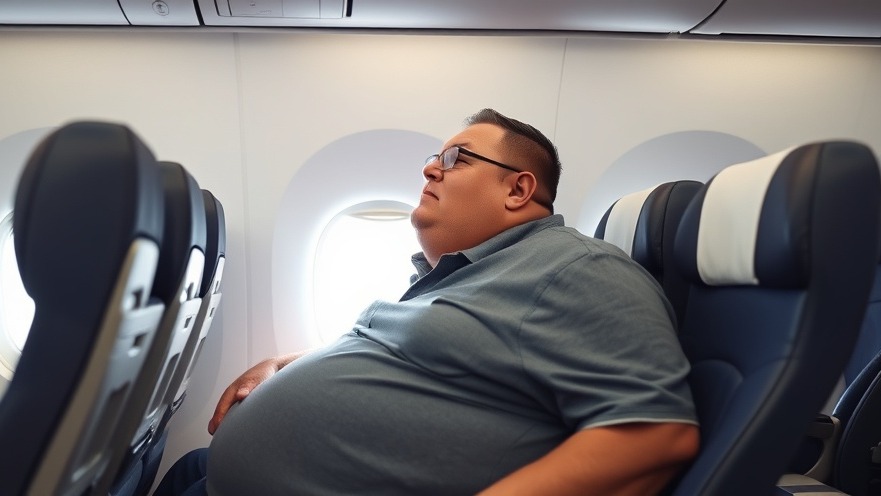
Southwest Airlines Implements New Policies affecting Plus-Size Passengers
In a significant shift to its customer service policies, Southwest Airlines has announced new regulations regarding extra seats for plus-size passengers, effective January 27, 2026. The airline, known for its informal boarding style and open seating, is now mandating that travelers requiring additional space for comfort purchase an extra seat at the time of booking, rather than at the airport where current policies permit complimentary requests.
Jason Vaughn, a travel agent specializing in services for larger passengers, argues that this decision not only affects those needing extra space but compromises the overall flying experience for everyone. ‘It’s been a progressive step for travelers until now, accommodating different needs with relative ease. This new approach feels more like a regression,’ he asserts.
Understanding the New Policy Changes
The new rules stipulate that passengers still have the option to seek refunds for extra seats, but only under specific circumstances: the flight must not be full, both tickets must be booked in the same class, and the request for a refund must be filed within 90 days. This change introduces a layer of complexity for travelers who previously enjoyed the ability to secure their additional seat after arriving at the airport.
What's Behind Southwest's Decision?
Southwest Airlines’ updated policy is part of a broader overhaul coinciding with the introduction of assigned seating — a move that ended their infamous open boarding system. Analysts suggest that this shift aims to streamline operations and improve revenue, reflecting pressure from investors to enhance profitability. Similar changes earlier in the year, including the discontinuation of the “bags fly free” policy, have drawn criticism from customers who view these adjustments as moves to cut costs at the expense of customer satisfaction.
The Response from Loyalty and Travel Experts
Longtime passengers and airline loyalty members have expressed disappointment over these latest policies. Vaughn likens these changes to brand shifts that might alienate loyal customers, suggesting that the airline’s identity is becoming obscured amid business pressures. As airlines seek to optimize revenues, the customer experience remains at risk, raising questions about the future of air travel comfort and accessibility.
Can Southwest Maintain its Competitive Edge?
With changes like increased legroom fees and the introduction of red-eye flights, many wonder how Southwest will maintain its position in a competitive market. Customers who prioritized Southwest for its unique advantages such as no additional fees for luggage and flexible boarding are reassessing their loyalty in light of these evolving policies. Future air travel may increasingly favor those who can pay for their comforts, potentially alienating a significant segment of the flying population.
What Does This Mean for Air Travel?”
As we look ahead, it’s vital for travelers to stay informed about airline policies that impact their experience. Enhanced knowledge will allow individuals to make more informed travel decisions, especially among those requiring special accommodations. For many, understanding these changes is a necessary step in navigating the evolving landscape of air travel.
In conclusion, while policies may change, the importance of traveler comfort and inclusivity remains paramount. Customers are encouraged to consider their travel options carefully and weigh how shifting protocols impact their flying experience.
As air travel continues to evolve swiftly, staying ahead of changes like these is critical. Readers are urged to remain engaged with travel news and updates as we transition into a new age of flying where flexibility may become an artifact of the past.
 Add Element
Add Element  Add Row
Add Row 



Write A Comment